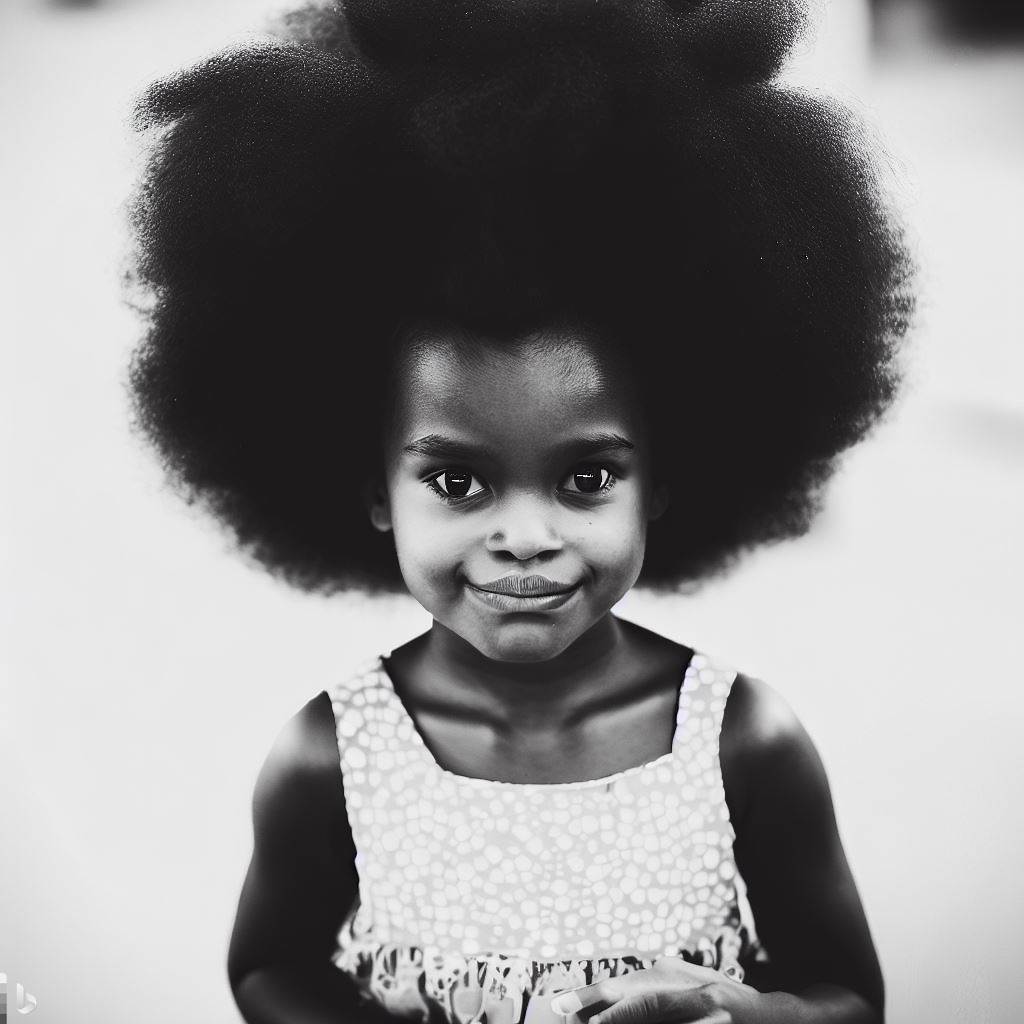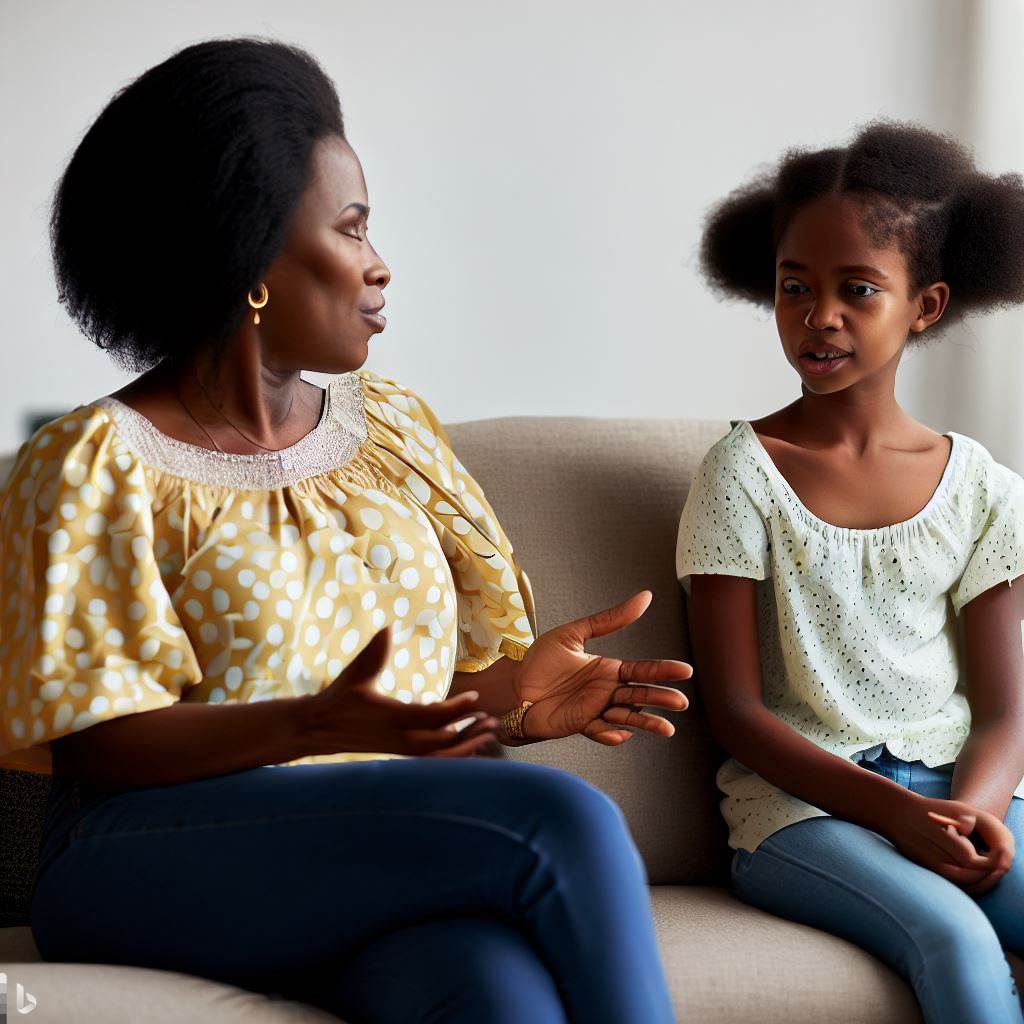Introduction
Parenting is an important and challenging responsibility for every parent in Nigeria. One factor that plays a crucial role in this role is religion.
Parents often struggle to navigate the challenges that come with balancing their religious beliefs and practices with their parenting responsibilities.
Examining the relationship between religion and parenting is crucial as it helps to shed light on how religious beliefs and practices impact parenting styles and outcomes.
Factors such as the religious denomination, level of religious devotion and cultural practices all come into play when it comes to religion and parenting in Nigeria.
Understanding this relationship can help parents to navigate the challenges that come with raising their children in a religious context.
It can also help them to make informed decisions about their parenting style, which can have long-term impacts on their child’s development and future.
Overall, the relationship between religion and parenting in Nigeria is complex and multifaceted.
It is important for parents to be aware of the challenges they may face and be prepared to navigate them in a way that is both practical and in line with their religious beliefs.
Read: Nigerian Parents: Tips to Teach Kids About Money
Role of Religion in Nigerian Parenting
Nigeria’s religious diversity is reflected in its diverse cultural practices and values.
Statistics show that Nigeria is divided almost evenly between Muslims and Christians, with a small percentage of people practicing traditional religions.
The religious beliefs of parents greatly influence their parenting practices and values.
Overview of Nigeria’s Religious Demographics
Nigeria’s Muslim population, concentrated mainly in the northern regions, participates in daily prayers and observes Ramadan, the month of fasting.
Christians, mainly in the southern parts, observe the regular Sunday services and celebrate Christmas and Easter.
The religious practices in Nigeria have been integrated with traditional beliefs and practices, resulting in a unique blend of religion and tradition.
Parenting Made Just for You
Get personalized Parenting Solutions tailored to your child’s needs. Transform your parenting journey with expert guidance in 1-3 days.
Get StartedHow Religion Shapes Parenting Values and Practices in Nigeria
Religious beliefs influence parenting choices and values, such as the importance of prayer and devotion.
In Nigeria, parents teach their children the importance of attending religious services, respecting elders, and living in accordance with religious values.
Nigerian parents also encourage their children to follow religious guidelines such as avoiding premarital sex, drinking alcohol and gambling.
Examples of How Religious Beliefs Impact Parenting Decisions
Religious beliefs impact various parenting decisions for Nigerian parents.
For example, Muslim parents may choose to enroll their daughters in religious schools where they can obtain both religious and secular education, while Christian parents may choose to enroll their children in Christian schools where they can learn Christian values and morals.
Additionally, Nigerian parents who are members of religious organizations may choose to raise their children according to the guidelines set by their religious organizations.
Most importantly, religion plays a significant role in the parenting practices and values of Nigerian parents.
It has influenced various aspects of parenting choices, such as education, values, and beliefs.
Moreover, religious beliefs have been integrated with traditional beliefs and have resulted in a unique parenting style that reflects a blend of religion and tradition.
Read: The Role of Insurance in Safeguarding Family Finances
Conflicts and Challenges Arising from Religion and Parenting in Nigeria
One of the most common conflicts between parents in Nigeria arises from differing religious beliefs.
This is particularly challenging if one parent converts to a new religion, as it can cause tension and sometimes even rejection by the other parent.
In some cases, this can lead to a breakdown in relationships and even divorce.
Another challenge is the impact of religious beliefs on children’s education and socialization.
Unveil the Perfect Name that Tells Your Family's Story
Let us help you find a name that embodies your family's values, traditions, and dreams. Our personalized consultation weaves cultural insights to create a name that's uniquely yours.
Get StartedReligious schools may be chosen due to cultural or religious beliefs, but this may not always align with the education and socialization opportunities that non-religious schools may provide.
Additionally, children may be taught certain values and beliefs that may conflict with modern societal expectations and beliefs.
Navigating conflicts between religious beliefs and modern societal values is also a challenge for Nigerian parents.
For instance, gender equality is a value that is widely accepted in modern Nigerian society, but many traditional religious beliefs place a higher value on men and limit the roles that women can play.
This can be a source of conflict in households where spouses may not share the same views on gender roles.
- Communication is key in resolving conflicts arising from religious beliefs in parenting.
- Parents should agree on a common approach to addressing the impact of religion on their children’s education and socialization
- Parents should strive to find a balance between religious beliefs and modern societal values
One way to resolve conflicts arising from religious beliefs in parenting is through dialogue and communication.
Parents should discuss their beliefs and practices openly and honestly, while respecting each other’s views.
A compromise can sometimes be reached by agreeing to respect each other’s beliefs or by finding common religious practices to adopt in the household.
Parents should also agree on a common approach to addressing the impact of religion on their children’s education and socialization.
This may involve deciding on a school that aligns with their religious or cultural beliefs and values or exposing their children to multiple perspectives to help them develop their own beliefs and values.
Finally, parents should strive to find a balance between their religious beliefs and modern societal values.
This can be achieved by emphasizing core values that align with both religious teachings and modern societal expectations, such as compassion, kindness, and respect for all people, regardless of their gender or social status.
What’s More
Religion plays a significant role in parenting and family life in Nigeria, but it can also be a source of conflict and challenges for parents.
Conflicts can arise between parents of different religious beliefs, and navigating the impact of religion on children’s education and socialization can also pose a challenge, as can reconciling traditional religious beliefs with modern societal values.
However, with open communication, mutual respect, and a willingness to compromise and find common ground, parents can successfully navigate these challenges and raise happy, healthy, and well-adjusted children.
Read: Budgeting 101: Managing Your Family Finance in Nigeria

Strategies for Navigating Religion and Parenting Challenges in Nigeria
Religion can be a sensitive topic for parents, especially if they have different religious beliefs.
Managing these challenges requires effective communication and finding common ground between religious beliefs and modern values.
Furthermore, teaching children about different religions and promoting religious tolerance can help in fostering mutual respect and understanding.
Communication Techniques for Parents with Differing Religious Beliefs
Effective communication is crucial for parents with different religious beliefs. They should understand and respect each other’s religious beliefs.
It’s also essential to listen actively and express thoughts and feelings in a respectful way. Parents should avoid imposing their beliefs on each other or their children.
Instead, they can celebrate each other’s religious holidays, share their beliefs, and participate in religious activities together.
Finding Common Ground Between Religious Beliefs and Modern Values
Modern values may conflict with religious beliefs, leading to parenting challenges. Parents can identify common ground by exploring the underlying values of their religions.
They can also find common values in modern society. For instance, different religious beliefs may share a value of honesty, respect, and non-violence.
Understanding and practicing common values can promote unity and understanding among family members.
Approaches to Teaching Children About Different Religions and Promoting Religious Tolerance
Teaching children about different religions can promote religious tolerance and respect for diversity. Parents can start by introducing their children to their own religion, including religious practices, beliefs, and stories.
They can also teach their children about the beliefs and practices of other religions. This exposure can help children appreciate different religions and understand that they share common values.
Parents can also encourage their children to ask questions and seek information about different religions.
This approach can help children grow with a broader perspective about religious beliefs and practices, promoting tolerance and respect for diversity.
In the end, effective communication, finding common ground, and promoting religious tolerance are important strategies for navigating religion and parenting challenges in Nigeria.
Parents should also strive to educate their children about different religions, fostering a more accepting and inclusive society.
Read: Support Systems: Key to Work-Life Balance in Nigeria
Explore Further: The Impact of Political Unrest on Parenting in Nigeria
Conclusion
Essentially, navigating the challenges of religion and parenting in Nigeria can be tasking, but it’s crucial for parents to find balance.
We’ve discussed how religious beliefs can positively and negatively impact parenting in Nigeria.
It’s important for parents to understand the impact of their religious beliefs on their children and find ways to accommodate and respect individual differences.
Parents should also communicate openly with their children and provide them with a foundational understanding of their religious beliefs, whilst also exposing them to the world’s diversity.
Overall, parents should strive to be good role models who demonstrate the values and principles they want their children to follow.
It’s a call to action for parents to navigate the tricky waters of religious beliefs and parenting with grace and respect for one another, as the future of our society depends on it.




